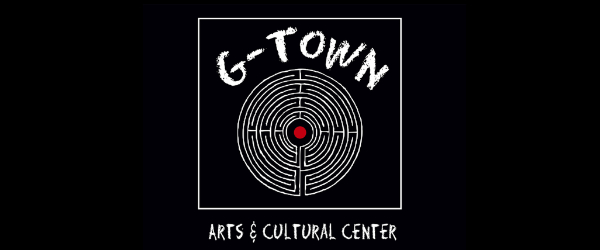
On March 31, 2022 Two Coats of Paint contributor Julia Kunin spoke with artist-reporters Violetta Oliinyk and Taras Polataiko to see how they were doing, and then she followed up on May 7. Due to unexpected technical issues at Two Coats of Paint, we have been unable to publish these interviews until today. We apologize for the delay.
Taras Polataiko: We are kind of still the same. It’s the same routine every day: We’re waking up, reading news, checking mail, checking messages and orders, fundraising, and delivering. It’s kind of boring.
Julia Kunin: How do you both keep up your motivation and your spirits?
Taras explains that they get daily news from Violetta’s brothers who are fighting.
TP: We’re getting news before it gets reported officially by our military.
What I’m worried about is people outside, in NYC, in Canada and UK, at some point people will be fatigued, kind of bored. I’m worried that it’s going to become a new normal and they’re going to stop paying attention and there will be pressure off the governments.
Taras Polataiko
So like one night we’re getting these first photographs on twitter and Violetta is yelling: “good news good news!”. The message comes like ‘Big Victory, that’s going to change the course of the war!”, so we are euphoric, maybe they kicked their asses so that they are going to retreat to Belarus. The next morning our official military digest adds it as a small footnote, but the dudes were so euphoric because they burned so many tanks, they felt it’s going to break the course of war. So it made us very happy and then in the morning your mood goes down. The moods still go up and down depending on whether you read the news, it’s important not to have your expectations too high. You’d like it to be over and on good terms, and it’s not, and it goes down. We understand that the war is not going to be over on its own, we have to win it and we will. What I’m worried about is people outside, in NYC, in Canada and UK, at some point people will be fatigued, kind of bored. I’m worried that it’s going to become a new normal and they’re going to stop paying attention and there will be pressure off the governments.
JK: I agree with you completely Taras and that’s been on my mind too. We are reminded that the war is effecting real peoples’ and that in other circumstances, it could be happening to us.
TP: What can I say. I’m a Canadian artist and it’s my choice to be here because I’m also Ukrainian. But I also feel it’s about my country. It’s terrifying to imagine I’ll have no country. I guess for me, I’ll still be Canadian but for my compatriots here, they’ll be homeless people, country-less people. I mean there will be a situation of 44 million Ukrainian refugees in Europe. It’s unimaginable. Because like most of the people I know, no one wants to live under Russian occupation, so it’s going to be a massive humanitarian crisis if we fall. So um, what can I say to make it real for people. I’m like any Canadian, American or European. I’m an artist. I’ve lived in Vancouver, Toronto, New York, and now I’m here. I’m like you guys.
JK: I was struck by what you posted on Facebook saying “My town is preparing”, because about a month ago, it was really different. You just told me that refugees were coming. Tell me more about what’s different now.
TP: In the beginning there was this sort of animal fear during the first weeks of massive bombardment. We had no idea how well our army is responding we didn’t even know if we should believe our media. Now we know our government is telling the truth, there is that solidity and whole country is solidly behind and together, that’s good. Then two weeks ago there was a sense that we’ve stopped them, and the frontline stalled, they are not moving toward us. It looks like it finally comes to Putin, that they can’t operate in so many directions. So they’re trying to use these negotiations to put the world at rest and trick us into making us relax and they are trying to regroup and consolidate their troops in the east and hit us very hard from there. We understand that. We’re not relaxed.

JK: That’s the same news that we’re getting basically. On that front, The media was very slow to publish about war crimes against women. We didn’t hear about it officially until this week (week of March 28), so that was interesting for me to see…why did it take so long to get the information?
TP: Violetta said I think it’s really important, the war crimes including rapes and robbery, shooting children…what I’m seeing in my Facebook stream, women friends, colleagues, artists reporting eyewitness reports, what they’ve seen of what their friends went through. It’s a massive amount of report of rapes (the woman was raped as her son was watching and the husband was shot and the body was right next to her). It’s all very true and there is a lot of it going on. I’m not a media expert but I think it’s really important for people to know.
TP: Mariupol is a city of almost a half a million people. Russia has forcefully deported Ukrainian citizens from the Mariupol region to underpopulated areas in Eastern Siberia which has been underpopulated for hundreds of years, that’s how Russia populated Siberia.
Taras went on to explain the controversy and horror of the International Red Cross, possibly unwittingly, sending Ukrainians to areas in Rostov, Russia, as it was deemed “safe,” only to be deported later by the Russians. The Ukrainian government has asked the Red Cross not to open an office in Rostov. Like many, Taras’ daughter and the firm she works for gave thousands of dollars to the International Red Cross. She contacted them and they denied any wrongdoing. This issue is still being investigated, and is a source of great anguish (there are news sources with information backing the International Red Cross’s involvement in Rostov, and news sources saying Ukraine asked the Red Cross not to open an office in Rostov).
JK: I’m just shocked. The horror of Russia deporting Ukrainians to Siberia is one huge crime.
TP: It qualifies under international law as a war crime.
Taras translates for Violetta: We are trying to raise money to help people who ended up in Russia this way, to repatriate them.
JK: How is your network helping the deported Ukrainians leave Russia? Does it involve diplomacy and negotiations?
Violetta Oliinyk: It’s a complicated situation. It’s looking like the Russian troops are going to bomb Mariupol till there’s nothing left of the city.
TP: The Ukrainian troops retreated from certain areas where civilians still remain. The Russians are deporting them against their will and taking away their passports.
VO: But some people managed to save their Ukrainian passports.
TP: We are fundraising to help get them out of Russia through third countries like Baltic states.
VO: But for most of those people they are taking away their passports and giving them a temporary piece of paper that forces them to live in the Sakhalin area (contested Japanese territory occupied by Russia after WWII) without any right to leave for two years.
JK: What’s interesting is that we’re not getting any details about where people are being deported, but you have the details.
VO: We know it from witnesses, from friends who know people. Like eyewitnesses.
TP: Violetta is on Twitter, she reads the tweets of the person who was there in this sports complex in Mariupol. Women and children are being deported. I read today that they are taking the men to the Russian army.
JK: It is shocking. Is your network of friends helping them raise the money?
VO: People who have possibilities to save passports, for those people we donate money and search for ways they can get out of Russia. Mariupol is near Russia, and Rostov is the first safe place in this region, so Ukrainians from Mariupol are first deported to Rostov.
TP: We are pissed off because The Red Cross was going to negotiate the humanitarian corridor from Mariupol , for some “safety” reasons they didn’t do it. It would be OK for The Red Cross to evacuate Ukrainian citizens to west of Ukraine but instead they established their office on Russian territory, so they are helping Russians deport people that way. We saw it on the news. They delivered five cisterns of water to the city of Vinnytsia, and it doesn’t need fucking water. It’s safe, like Chernivtsi. It doesn’t need fucking Red Cross water. So you know.
JK: We also read, a few weeks ago, that just children were being deported. Then we heard nothing. I have no idea if this is real or not real.
TP: According to eyewitnesses on Twitter, they are deporting women and children, and I guess children alone as well because there are a lot of war orphans now.
VO: We in Chernivtsi know a family of grandparents, and their grandchild was abducted.
JK: From Mariupol?
VO: There was an explosion involved and that child was taken from their grandmother and grandfather.
TP: Violetta is getting this from Twitter.
TP: It’s just evidence. No matter which way you look at it, it’s pure evil. Speaking of the Russians and how they operate, there are very few things that are real. The only real things are terror, fear, control, power, force. Everything else is manipulated. There’s no truth.
We discuss Putin’s motivation for war:
TP: It is existential on the level of existence as people. It’s genocidal. The very idea of Ukraine being democratic, historically it’s related to Russia, that’s what makes it dangerous for Putin. If there’s an instance of a culturally related nation becoming European, western, and successful, that will create huge envy within Russia and that will question his authoritarian rule, and his whole autocratic project of domination. For us it’s our existence as a European democratic Ukraine. You ask me to be specific. I would have to leave and be a refugee and live somewhere depressed for the rest of my life.
Pause.

TP: It would be easy to imagine for anyone in NYC, Maryland, or Seattle. You’ve built your life, raised your kids, they went to a specific school, you have your neighborhood, and all of a sudden somebody starts throwing bombs at you and makes you think of possibly being occupied by the power that is against your very existence and your beliefs. You have to flee, otherwise you become enslaved and are unable to be yourself. Anywhere in the world I think people can relate to it. It can happen anywhere.
JK: That is the only way people can imagine it. The other thing that troubles me, is that I’m trying to understand why the Russian people support Putin so much?
TP: Putin is flesh and blood of the Russian people the same way that Adolph Hitler was flesh and blood of the German people. There was a small segment of the German population that was against, but they were voiceless because it was too dangerous. What surprises me, is how long will it take for the larger population in the west to understand that it’s a replay of Nazi Germany, but it’s the “made in China” version. Lucky for us it’s not a quality version. It’s a Russian version and that gives us a chance. Putins’ flesh and blood…. and I mean the evil empire of the Soviet Union, lost. It fell apart and the whole world rushed to help them become a democracy and functioning economy and it failed.Putin came to power and turned it around to make an enemy out of the West. What makes Ukraine different is it’s not easy to get out of 70 years of the totalitarian state of the Soviet Union and become a democracy. Ukraine paid the price of two revolutions and the Russian invasion of 2014 that continues and culminated in this war. I don’t like it but it seems like there has to be a bloody price for it to be a truly democratic country. While the Russians never bothered.
As Putin is selling oil and gas, and that money is used to keep the society at bay, and finance the military industrial complex, the Russians are to blame, they had a chance (to rebel) and didn’t use it. There was a small segment of the population in Moscow trying to rebel, but Russia is super chauvinistic, fascistic, they buy this propaganda. The root of it is in imperial thinking, it’s how Russians always think about themselves. Both liberal and right-wing Russians still imagine themselves as a superior imperial culture. Now it evolved into this extreme fascist form but it’s always been like this for centuries.
When I listen to my art colleagues like museum workers from Russia I can’t believe how far behind they are. They are trying this catch-up game and it’s the first time ever, I heard Russian intellectuals trying to speak about the necessity of decolonial and post-colonial discourse.
JK: But just now?
TP: Yes, just now. And you know why. They understand that there is no room for that discourse in Russia. They are worried about their careers, so they are designing their next project for a show in New York City. It’s not about their inner convictions.
JK: I know a lot of Russians are leaving, the ones that had the potential to change society, and the question is whether or not they go back and change it from within.
TP: That is the last thing I’m worried about. One thing I want people to understand, I really think that NATO armed to the teeth is using 40 million Ukrainians as a human shield. If we don’t fall, if we have enough blood to shed, it’s a huge price and we are paying most of it. At least Russia has to be de-nuclearized. The U.S. congress has to vote to recognize Russia as a terrorist state after Russia’s economic collapse. Putin terrorizes the world, to not help Ukraine because of threat of nuclear war. We should take their nukes away and help them de-nazify.
JK: I agree with the terrorist state. You are right about everybody being terrorized, you, more than anybody, it’s a matter of life and death and culture and history. Everything.
TP: For us it’s a genocidal threat.
JK: That is absolutely clear.
“We’re doing our part here…you cannot be too safe, you just have to do your thing. It mobilizes you, like an army of survivors.”
Taras Polataiko

TP: I was talking to my daughter and they were really worried about nuclear war. It’s interesting how terror works. The worst was in the first couple of days. It was this animal, physical kind of fear. The “Nazis” will come with guns and you will have to really run, because they’ll probably find out what you’ve been doing on Facebook and your artwork that you are against them. I read about their plans of concentration camps, executions and deportations. Ukraine is a large country of 40 million people so they would have to use terror for control somehow, like deportations to Siberia and executions. Basically we decided we’re not leaving, we’re doing our part here and to do it effectively you cannot be too safe, you just have to do your thing. It mobilizes you, like an army of survivors.
JK: It’s so hard for me, even as a listener, to absorb everything you are telling me.
I asked Taras about the photo he posted of a monument protected with sandbags and pictures.
TP: It’s a last remaining monument from Habsburg era, European period of the city, they wrapped it nicely in those sandbags. My daughter was “like how can I help?” She was asking me why are you just helping the army, why don’t you also help the old ladies? So I said OK, send me a chunk of money and I’ll make sure I’ll give that to elderly women. In that process it turned out, most of the elderly women here embroider or do some handcrafts. I suggested to my daughter to do a fundraiser using elderly people’s crafts. 50% to the elderly and 50% to civilian defense.
My dad is an artist and my mom makes all sorts of crafts. They have these artist friends and older women friends who make crafts. An elderly lady gave me some little embroideries for a few days so I could put them into different contexts and take some shots, kind of artistic, so my daughter can sell them to raise money. I knew that the city protected that monument. I went there with a bag full of embroideries, arranged them spontaneously, and took a shot.

JK: I really love that photo and it did look like some kind of ritual. It does bring the Habsburg monument into the present but at the same time those embroideries go back to folk art that has been passed down through the generations.
TP: This specific lady gave me her whole life’s work to display, from the first embroidery she made when she was 8. She entrusted her whole life’s work with me. When I do my errands, I place them in contexts maybe related to war or nature and send the photos to my daughter. The artist gets half and the other half goes towards the war effort. And the old ladies are very happy about that.
JK: That’s amazing…putting things around the city, combining your artwork, the women’s artwork and your daughter’s fundraising project.
TP: There’s three of them already…embroiderers, and the list is growing because my mom is on the case, which is good because they’re feeling useless, they wanted guns and I said like forget it you’re 82 and your hands are shaking.
JK: (laughter) I should not laugh.
TP: No you can laugh. We’re laughing here, we’re not like crying all the time. I said to my mom, Just take care of yourselves, we’re bringing food, I’m happy that you can still cook for yourself, and it gives us time to do the war effort. No guns for you. So this gives my mom a purpose. She’s on the phone with her friends.
JK: That’s fantastic.
INTERVIEW WITH VIOLETTA
I switch to a conversation now with Violetta:
JK: Hi Violetta, have things changed in Chernivtsi since we last spoke?
VO: No. I can’t tell you about what going on in Kyiv in the north of Ukraine because I saw one of my brothers two days ago because Russians shelled their car and my brother came to Chernivsti to buy two used cars and take them back to Kyiv.
TP: They use their own cars for the reconnaissance mission that they are doing, and we are fundraising for that.
JK: Where did they leave their car before it was destroyed?
TP: Kyiv, Bucha and Irpin, small cities near Kyiv where there are Russians, and my brother and his comrades are in this group. They had three cars and two cars were destroyed. One guy is dead from their group, but others are alive and they need new cars. They got one from Poland and one from Romania, so he came to take these cars. He was telling me what the situation is in Kyiv now, so nothing new, Russians are there, and all is bad, no good (Update: this was just before the Russians left the area).
JK: It sounds very dangerous to drive back and forth to Kyiv and Irpin. What they are doing sounds very risky.
VO: Because of the situation they need to drive in cars, get in and get out quick.
VO: My younger brother is in the North East. They are shelling Russians from a distance. Now the Russians are retreating, and redeploying.
TP: He called us today and he was kind of pissed off and said, “we got the order to come and clear the small village but the Russians were gone by then and it was a waste of time.”
VO: said like “fuck you, you’re lucky you’re alive.”
VO: They are going to the cities in the Sumy region and now they are in the Kyiv region because some Russians went back. My younger brother and our guys went to cities that were occupied, talked to people who lived in these cities. He’s never seen emotion like this where old ladies said: “we are happy that Ukrainian troops are here, the Russians are terrible, they are bad and we are happy that you are coming to our city.” The ladies were crying.
TP: The brother calls and says that little kids visit them from time to time and they are telling them about their problems.
JK: How old are the kids?
TP: Small, around five-years-old. Because the kindergartens and schools are closed or bombed. It’s chaos and they can’t go to school. So they are telling the soldiers about their problems, they are asking them to clean their jacket, or they have a quarrel with someone and they are asking for help with that. They brought this copper wire. The kids are looking through the debris, the aftermath of military hardware, and they’re picking some metal, copper and stuff and they are are going to sell them to metal collecting places to raise money for a t-shirt that says “Putin is a loser.”
So the kids are raising money for that one t-shirt. We want to actually make that t-shirt here so that the kids don’t have to collect the metals.
JK: The kids must look up to these soldiers quite a bit.
VO: My other brother doesn’t see any kids. There are no civilians where he is….maybe some old people who don’t want to leave their homes, but my younger brother is in places where normal people are living because these cities are near Russia. Russia occupied those cities quickly so people couldn’t evacuate.
JK: Which cities?
VO: In the regions of Chernihiv and Sumy. Sumy is not occupied but small towns around it. But now Russian troops are retreating.
TP: So Ukrainian troops are doing small counter attacks and reclaiming small cities. There are already 30.
JK: Great news. Are they bringing in humanitarian aid for people in those cities?
VO: Some Ukrainian guys go to the city…
TP: First a small group of Ukrainian soldiers come into the cities, they check and make sure there’s no Russians and it takes a couple of days to clear it completely, then they also have to de-mine it. The Russians are leaving mines. And then comes the regular army, with all the humanitarian help and all that. Because the Russians have special guns they are shooting mines when they are retreating. They are putting explosives in the corpses. When our medics are trying to move the corpses, they explode.
JK: That is just horrific, oh my god!
VO: Our guys were in Bucha for a very long time. 40 percent of Bucha was controlled by Russians and 60 percent by Ukrainian soldiers, it’s like a grey zone. Now its controlled by Ukrainians but they are still de-mining it.
JK: So you are getting really important information from your brothers. Do you have other things that you want to talk about Violetta?
VO: The most important thing is Mariupol. They really need help.
TP: We really need helmets. What happened was they (the brothers and their group of 16) were given helmets from the official aid from EC, but they were size small, maybe two of them can use it but the rest of the guys are fighting without helmets.
VO: If we can find two or three helmets, it’s good.
TP: They’re probably around 500 bucks but it’s not a money problem, you can’t buy them in Europe anymore because I think so many people like us are trying to buy for a brother or friend. In Poland two days ago they made a regulation that only the government can buy them. All the government actions are so slow and Violetta’s brothers are still fighting without helmets.
VO (TP translates): I saw this wonderful thing in Chicago. The police department donated their whole surplus of old helmets that were not used for years, so if American police of some city can do it, that would be a huge help. We asked, so why don’t you use the trophy helmets? Unfortunately, the Russian helmets are shit, they are old heavy useless ones.
JK: One more question. Are you still trying to raise money for the cars? How much money do you need?
VO: Used cars cost $3,000 to $4000. It’s a good cheap car for war. They have to be used, 4-wheel drive, and diesel because gas is not available anymore.
VO (TP translates): So today we didn’t have sirens yet but yesterday and day before we had five sirens per day. They are bombing our oil depositories so we are worried our army will have no diesel. In nearby Khmelnitsky, the oil depot was bombed four times.
TP: They are bombing them all over the country. I’m not sure if we’re going to get a supply of diesel from Europe. It seems like they figured out they can’t win on the ground so they are bombing the infrastructure.
JK: I hope you keep getting more and more arms that you need. I know it’s never enough but…
TP: It’s been totally weird it’s been a month. Zelensky was upfront about longer range missiles that can close the sky. They (the Russians) are shooting missiles from the Black sea and from Belarus. And we don’t have long range air defense. If it continues this way, we’ll be completely bombed out. This is nerve wracking. Everyday we read that this country promised this, another country promised that. That stuff is still not here and it’s weird.
JK: Biden just signed a bill for a large amount.
TP: When you listen to him speak it sounds good, but I don’t see the effect of it because we are still being bombed the same way as one month ago.
JK: (deep breath) I hope you can take care of yourselves while you are taking care of everybody else. I’m thinking of you. Thank you so much.
“We also want people to know that the war is still happening. People are dying. “
Violetta Oliinyk

I spoke with artist Violetta Oliinyk on a Saturday afternoon May 7 while she was in a car waiting at the Ukraine-Romania border crossing with her mom, transporting necessary equipment for Ukrainian soldiers. Some things have changed since then, but this first-hand information is searing and personal at a time when people are experiencing war fatigue. Please see the end of this article for the art fundraisers she and Taras Polataiko are organizing, that include Taras’ photos of Ukrainian folk art and work by Janet Cardiff.
JK: Amazing that you are driving goods over the Romanian border this very minute as we are talking. It’s been a long time since we last spoke.
How are you, I know that’s a hard question but…
VO: I’m OK, I live in Chernivtsi. Just now my mother drove from Poland with supplies for the guys (citizen soldiers). I need to be in this car so this morning I traveled from Chernivtsi to Romania, and now I’m going back to Ukraine
JK: Wow. So how did you get to Romania?
VO: My oldest brother is now in Chernivtsi because we are buying a rifle for him. He needed to come to Chernivtsi from the front to get a license from the police, so he drove me to the border. This gave him a chance to meet our mother. They didn’t see each other for a long time, not since Christmas.
JK: How are things going with the volunteer system? What are you picking up in Romania and what are you bringing?
VO: We buy many supplies in Poland but because of so many refugees it takes a very long time to cross The Polish-Ukrainian border. The Romanian-Ukrainian border is faster, so my mother and her boyfriend drove from Poland to Romania last night.
VO: I’ve been at this border since 11:00 a.m and it is now 4p.m. (UPDATE: they finally crossed at 10:00 p.m.)
JK: Are there certain things you are looking for that you need more of now, in terms of equipment?
VO: Yes, this protective gear is made from material and this material got destroyed. Got worn out. We are buying two rifles, one we already bought. For another we are still waiting for because of bureaucratic procedure. It takes time. We are buying some supplies for these rifles as well.
JK: Have your brothers and their friends received any of the U.S. armaments?
VO: It just started trickling in. Very slowly. My brothers say they heard that there are some U.S. howitzers at the front already. But they themselves haven’t received any supplies from the U.S. yet.
JK: A lot has changed. Has life for you in Chernivtsi changed?
VO: Not changed. We are nervous about Transnistria. We are afraid about May 9 [Note: Russians celebrate Victory Day on May 9] because the mayor of a city near Chernivtsi told people to leave the city for three days because heavier than usual bombardment is expected around May 9. There was no such warning for Chernivtsi, but I think it might be the same. We might go to some village because Russians can make extra terror around that time.
JK: Will you and Taras go, have you made arrangements?
VO: We didn’t plan it but because my mother is driving to Chernivtsi maybe we will go to our family village.
JK: You would drive tomorrow?
VO: and Monday, 3 days. It just may be unsafe.
JK: I hope that you do get to leave and get to the village and be as safe as possible. I’ve been thinking about that day, It has been on my mind, and you both have been on my mind, in the west (of Ukraine) because we never know what’s going to happen. You’ve been so amazing. I’ve seen all your pictures that you’ve put up of your deliveries. I saw that Lviv lost electricity for a while.
VO: Yes.
JK: Did that effect you and your deliveries?
VO: No. My older brother was in Lviv at the train station that day, but he is OK. I have a sad update about what’s going on now though. Last time I was talking with you, I was in contact with a guy from Mariupol. He told me they need help, they need media talking about Mariupol. Three days ago he died. We hope that at least civilians will be evacuated from Azovstal, this large factory. Both soldiers and civilians are hiding there underground and Russians try to kill them. They’re now bombing them with illegal phosphoric bombs.
JK: It’s been painful to watch from here waiting for the International Red Cross to do something. I know they made negotiations. We are reading that the Russians say they are allowing humanitarian corridors but it’s not the truth so that when people try to leave they shoot them.
VO: Yes. Yesterday night our soldiers took civilians from Azovstal in cars to this point where the evacuation was supposed to start. Russians shot at these cars. Many people died. I saw a video of it. In a few days many civilians were evacuated but now we have the same problem because nobody wants to evacuate the soldiers.
JK: The Ukrainian soldiers are stuck.
VO: Ukrainian soldiers inside Azovstal. Many civilians evacuated but some civilians still remain inside Azovstal.
JK: I can’t imagine how upsetting it is that your friend is gone.
VO: We have contact with the guys and girls that were in Azovstal, because they have internet, but we can’t help them and it is very sad, frustrating feeling when you can talk with them but you can’t help them and they understand it.
JK: Did some soldiers get out?
VO: No. Russians are dropping leaflets from airplanes with information that people can raise a white flag and leave Azovstal. Three volunteer guys from territorial defense did this. They went to Russians with white flags. The Russians made a video of it for Russian TV. But later they sent a photo of one of the guys who had died, to his mom from his phone.
JK: Are there other things you are thinking about every day that you want to tell people?
VO: The first thing we need is to evacuate soldiers from Mariupol. Turkey can do this because they can do it by sea. We also want people to know that the war is still happening. People are dying. It seems like people in the West think that war has ended. A woman asked my mother a few weeks ago, if Ukraine was still being bombed.
JK: They think the war is over?
VO: Because there’s much less news about Ukraine on Polish TV now, so people think the war is over.
JK: Are you getting enough news in Ukraine?
VO: In Ukraine, yes. We have all news on the internet from the President, from generals and military analysts. They talk with us every time, every day with updates, so we have information. It’s strange that in Poland some people think the war is over.
JK: Are you getting enough things you need, like food and electricity?
VO: In Chernivtsi we have most necessary things. We’re stuck at the border for so long because of sirens all over Ukraine. Russian missiles just hit Odessa. Once the sirens are on, most things in the city stop working. We run to shelters or to a safe place in the house. There’s a rule of “two walls” now if you don’t have enough time to get to the shelter. There has to be at least two walls between you and the street. But food supplies we have. Maybe not as many as we had before the war, but it’s OK in Chernivtsi compared to the cities closer to Russia.
JK: And gasoline?
VO: No, we don’t have gasoline, we don’t have diesel. Most military vehicles need diesel. My brother drove from here to Kyiv on diesel from Russian tanks. They took the diesel from Russian tanks that remain in the forests around Kyiv after March fighting and sent it to Chernivtsi. Now we can only buy diesel in very small portions, 10 liters and it’s very expensive. [May 16 update: now we have gasoline only for emergency services. You can’t buy it at all. Diesel is hard to find.]
JK: People are afraid something will happen in Transnistria (on May 9).
VO: Chernivtsi is very close to Transnistria. Russians are talking about invading Moldova using Transnistrian territory. So we worry about it. We also worry about the possibility of invasion from Belarus.
JK: I really hope for your safety and everybody’s safety. You’ve been going strong and it’s amazing. We know now that people are making records of the deaths and war crimes and trying to find out who committed the crimes. Like in Bucha. I wonder if there is a network. How are people reporting these crimes. Are you hearing about this?
VO: I’m hearing about it because our government is asking us to collect evidence. They’re collecting evidence for courts. War crime victims or eyewitnesses are asked to report to the police. People are tracking war criminals too and publish phone numbers so one can call them and let them know what one thinks of them. The numbers are easy to track because the Russians are sending the stuff they looted here back to Russia by Belarus postal service.
JK: Wow.
VO: We have phone numbers and names of these Russian war criminals. We can call them and tell them that we know where they live and we’ll find them sooner or later. Another reason for doing this is to prevent more war crimes on Ukrainian territories which are still occupied.
JK: That’s really important. I understand now that you are sending the message that they will be caught.
VO: Yes. We can explain it well to them because most of us know Russian very well.
HOW YOU CAN HELP UPDATE: We’re currently fundraising for a drone capable of flying 20km. That’ll make our guys’ jobs much safer. They sent us plate numbers from destroyed Russian military vehicles. We’re starting an auction selling those plates to raise money for the drone. You can take part in that auction by visiting Taras Polataiko’s page on Facebook.
If someone wants to help us by donating, they can drop money to Violetta Oliinyk’s Paypal using this email address flotilia.my@gmail.com
Here is the link to our art fundraiser, which has been joined by Janet Cardiff and other artists. They are accepting works under $100.00 https://www.someonepraysforyou.com/janet-cardiff
Related posts:
From Artist to Wartime Courier: Delivering Medicines to Ukraine’s Frontline
Interview with Taras Polataiko, an artist who returned to Ukraine, part 1
Interview with Taras Polataiko, an artist who returned to Ukraine, part 2
We have taken in a refugee family and we need a mattress
About the author: Brooklyn artist Julia Kunin was a Fulbright Scholar to Hungary in 2013 and she received a 2010 Trust for Mutual Understanding Grant to Hungary. She has received a Pollock-Krasner Foundation Grant and had a residency at Art Omi. Recent solo shows include “Rainbow Dream Machine” at McClain Gallery, Houston (2021-2022) and “Mechanical Ballet” at Kate Werble (2021-2022).
























